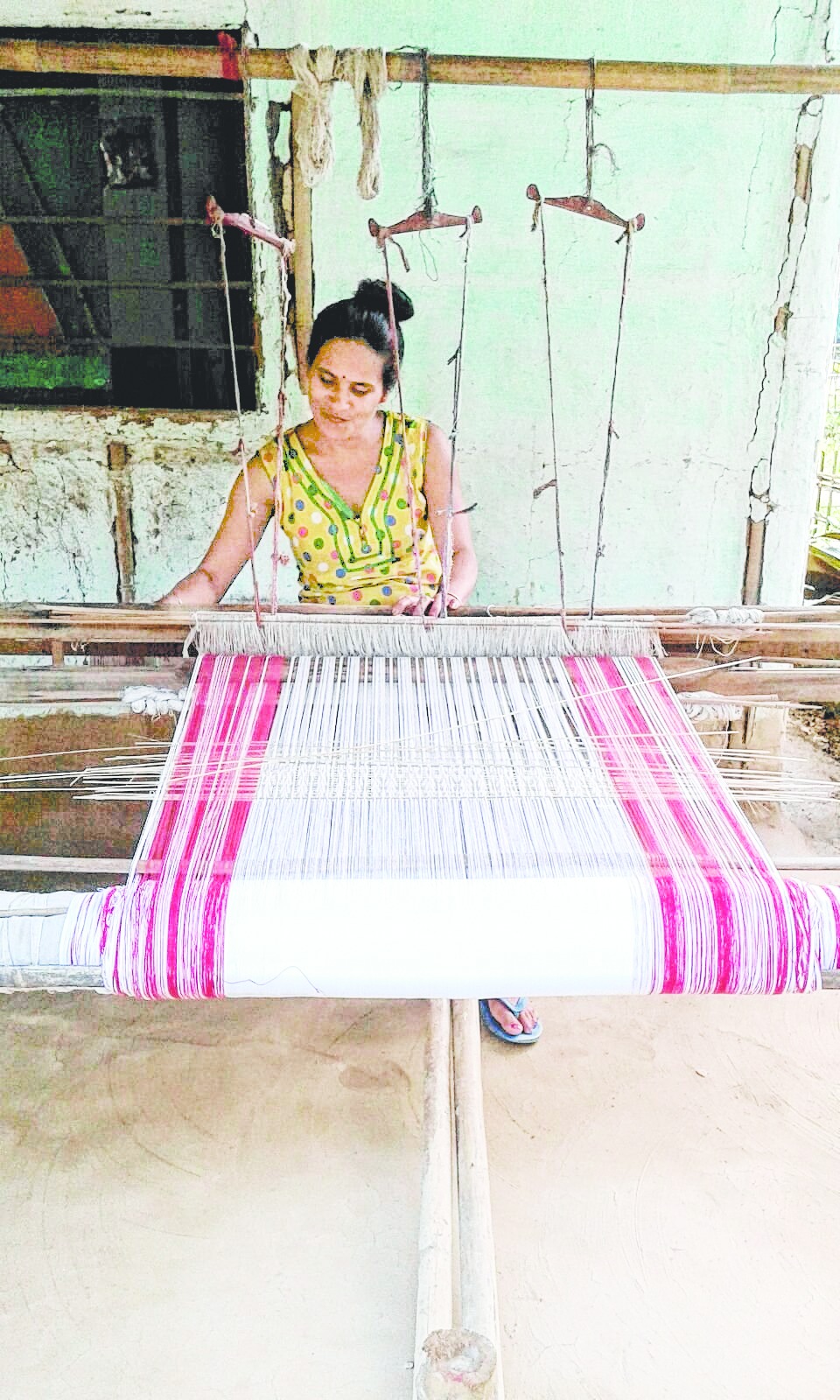
Demow (Sivasagar), Sept. 30: In order to bring an end to import of gamosas, some youths here have decided to launch a drive on Gandhi Jayanti to make the traditional cotton towels of Assam available in large numbers during Rongali Bihu next year by encouraging local weavers.
"We have set a target of producing nearly three lakh gamosas by Bohag Bihu in April. For this, we have selected 200 local women weavers from various villages in Bokotha Nemuguri area," said Nayan Bhagawati, an office-bearer of newly formed NGO, Antarun Public Welfare Society, with which the youths are involved.
Bhagawati added that they would distribute 5,000 bundles of yarn free of cost among the weavers on October 2 at Dehajan.The condition is that the weavers have to hand over 50 per cent of the finished products to the NGO. Then, the NGO will market these gamosas with the help of the state handloom and textile department.
"The weavers can sell the remaining 50 per cent on their own and also to us. If they wish, we will purchase the products from them," said T. Karmakar, another office-bearer of the NGO.
Bhagawati said the idea to launch such a drive was conceived while the members of the NGO had visited various villages in the interior parts of Sivasagar district to conduct awareness drive on the evil effects of mobile phones.
"We noticed that almost all the households in the villages have looms to make gamosas and mekhela sadors. But because of financial constraints, the weavers are not being able to purchase the raw material. Therefore, we decided to launch a drive to encourage the weavers," he added.
Literally, gamosa means a cloth to wipe the body. It is an indispensable part of Assamese life and culture. It carries the symbols of friendship, love, respect, warmth and hospitality. Gamosa is intricately and intimately woven into the social fabric of Assam.
Weavers in the state produce nearly two lakh gamosas annually with state grant of Rs 1 crore. But imports from other states, mainly Chennai and Bangalore, flood the market especially during the Bihus when the sale of the product increases manifold.
The state's handloom sector employs more than 25 lakh weavers and allied workers and is second only to the agricultural sector in terms of providing employment.
Karmakar added that the state handloom and textile department had been encouraging the NGO for the initiative and promised to do the needful to market the product.
"We have also received tremendous support from the local administration," he said.










